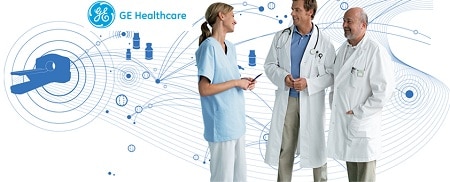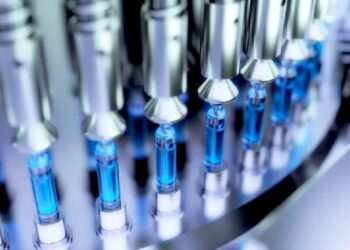GE Healthcare introduces a new Protein A chromatography resin, MabSelect PrismA, which will help biopharmaceutical manufacturers improve their monoclonal antibody (mAb) purification capacity by up to 40 percent (1). The resin is also significantly more alkaline-stable (2), meaning that MabSelect PrismA can be cleaned with a higher concentration of sodium hydroxide to better control cross-contamination and bioburden risks (3).
Monoclonal antibody products (mAbs) are the largest and fastest growing segment of biologics; the market revenue is estimated to reach USD 125 billion in 2020 (4). Nearly all mAbs on the market use Protein A resin as the first purification step because it offers an efficient, common platform for different mAbs (5). Protein purification is an obligatory step in biomanufacturing, and the target protein that is extracted from the cell culture is used to make the final biopharmaceutical product.
The efficiency with which cells produce antibodies during the biomanufacturing process has improved radically during the past years, creating pressure on the purification technologies. The result has been increased processing times, and larger consumption of chromatography resins.
MabSelect PrismA addresses a number of key challenges, including the increased upstream titers (6). The new resin is highly efficient due to its excellent binding capacity, which is critical, because it determines how much resin is needed to purify a certain amount of protein.
“Biopharma companies are constantly looking for more ways to increase their output, and Protein A has a critical role to support these efforts. The thorough research and development work that we have carried out to create MabSelect PrismA sets a new standard for mAb purification. To put it simply, with this chromatography resin our customers will be able to produce more biopharmaceuticals out of their existing manufacturing equipment. Protein purification is no longer a bottleneck, but driving higher productivity and shorter manufacturing lead times for our customers,” says Jan Makela, General Manager, BioProcess, GE Healthcare Life Sciences.
MabSelect PrismA has been developed at the GE Healthcare Life Sciences site in Uppsala, Sweden, where the resin is also manufactured. The factory in Uppsala is one of the largest manufacturing facilities for chromatography resins in the world, and between 2017 and 2022 GE is annually investing up to USD 70 million in the production facility to significantly increase its capacity.
GE Healthcare’s customers can order MAbSelect PrismA samples as of today. The product will be fully available for orders during the first half of 2018.
(1) Compared to GE Healthcare Life Sciences’ MabSelect SuRe LX.
(2) Compared to GE Healthcare Life Sciences’ MabSelect SuRe LX.
(3) Bioburden is the degree of microbial contamination or microbial load, the number of organisms contaminating an object (Medical Dictionary for the Health Professions and Nursing)
(4) Ecker DM1, Jones SD, Levine HL (2015): The therapeutic monoclonal antibody market
(5) Downstream processing of monoclonal antibodies—Application of Platform Approaches (2017)
(6) Titer characterizes upstream manufacturing efficiency that indicates that more desired product is manufactured using the same or less amount of fluid or filled bioreactor volume. (BioProcess International: 30 Years of Upstream Productivity Improvements)



















